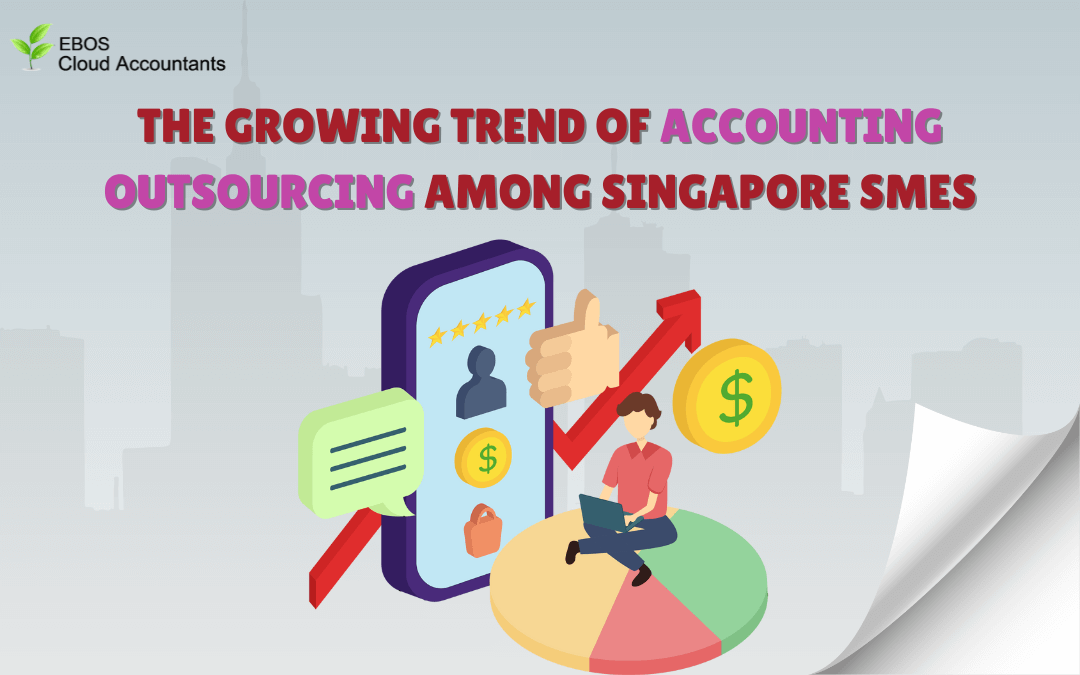The management of accounting operations by small and medium-sized firms (SMEs) in Singapore has seen a notable change in recent times. A growing number of SMEs are using outsourcing as a calculated approach to manage their bookkeeping needs. Numerous considerations, such as the need to focus on core business activities, gain access to experts, and save money, are driving this trend. Let’s examine the reasons for the growing popularity of accounting outsourcing among Singaporean SMEs as well as the advantages it provides.
1. Cost-Effectiveness and Resource Optimization
One of the key reasons SMEs in Singapore are outsourcing their accounting activities is cost-effectiveness. Hiring and keeping an in-house accounting team may be expensive, especially for small organizations with restricted finances. The expenditures involved with labor, benefits, office space, and software can add up quickly. By outsourcing, SMEs can convert these fixed expenditures into variable prices, paying just for the services they require.
Outsourcing also allows SMEs to allocate their resources more efficiently. Instead of investing in full-time workers and the associated infrastructure, firms may focus their resources on areas that directly contribute to revenue growth, such as marketing, product development, and customer service.
2. Access to Expertise and Technology
Accounting is a specialist field that requires up-to-date understanding of legislation, tax laws, and financial reporting standards. Keeping up with these developments can be tough for SMEs, especially those without a dedicated accounting staff. By outsourcing, firms gain access to a team of seasoned professionals who are well-versed in the newest accounting techniques and compliance regulations.
Moreover, many accounting outsourcing organizations use innovative software and technology to expedite their procedures. This includes cloud-based accounting systems, automation tools, and data analytics platforms that can provide real-time insights into a company’s financial health. SMEs profit from these technological improvements without needing to invest in pricey software or training.
3. Focus on Core Business Activities
For many SMEs, the primary goal is to develop their business and fulfill their strategic objectives. However, administrative responsibilities like accounting can occupy valuable time and divert business owners from focusing on key activities. By outsourcing accounting activities, SMEs can free up their time and concentrate on what they do best—whether it’s developing new products, expanding into new markets, or refining customer experiences.
Outsourcing also provides peace of mind. Knowing that their financial records are being managed by specialists allows business owners to make educated decisions with confidence, lowering the chance of errors and maintaining compliance with regulatory standards.
4. Scalability and Flexibility
As SMEs grow, their accounting demands get more complex. Outsourcing allows the freedom to scale services up or down based on the business’s requirements. Whether a company requires additional support during busy seasons or specific expertise for a particular project, outsourcing firms can provide bespoke solutions to address these changing needs.
This scalability is particularly advantageous for SMEs experiencing quick expansion or those operating in dynamic industries where demand can fluctuate. By working with an outsourcing provider, businesses may quickly respond to changes without the need to hire or educate more workers.
5. Enhanced Compliance and Risk Management
Singapore has severe regulatory standards when it comes to financial reporting and tax compliance. Non-compliance can result in sanctions and damage to a company’s reputation. Outsourcing accounting functions to a competent firm can help SMEs manage these rules effectively. Experienced specialists ensure that financial accounts are accurate and submitted on time, lowering the risk of non-compliance.
Additionally, outsourcing organizations frequently have extensive internal controls and risk management mechanisms in place. This helps decrease the danger of fraud and errors, offering an extra layer of security for the company’s financial data.
Conclusion
The trend of accounting outsourcing among Singapore SMEs is expanding for various compelling reasons. By outsourcing their accounting tasks, firms can obtain cost savings, gain access to professional expertise and innovative technology, and focus on their main activities. The flexibility and scalability offered by outsourcing also help SMEs to react to changing needs and ensure compliance with regulatory standards.
As the business landscape grows increasingly competitive, SMEs in Singapore are recognizing the value of outsourcing as a strategic tool to boost efficiency and drive growth. By collaborating with a competent accounting outsourcing firm, these organizations can harness professional skills and technical improvements to stay ahead in the market while ensuring their financial operations are managed successfully.
Check out our website at https://ebos-sg.com/ to explore more articles and discover how our Cloud Accountant Services can support you on your business.







